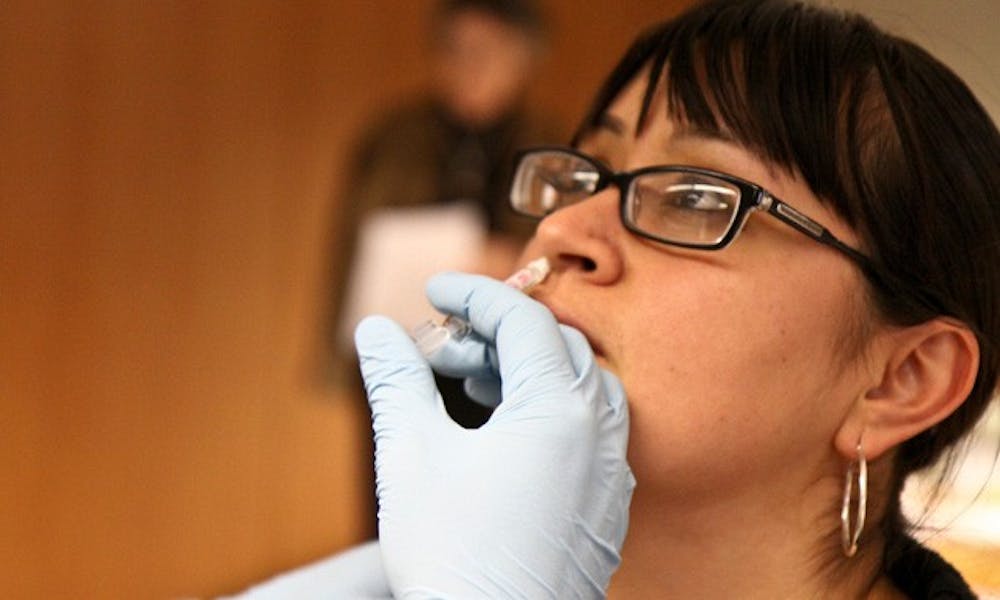The once scarce supply of H1N1 vaccines at Duke is now relatively plentiful.
Since December, Duke University Health System has kept each clinic comfortably supplied with vaccines, said Dr. Cameron Wolfe, an infectious disease physician at Duke University Medical Center. More vaccines can be ordered on a weekly basis, and a “good few thousand” are in reserve, he said.
“We have a lot of swine flu vaccine right now sitting in the refrigerator which has not been administered to anybody, which is kind of sad considering how many people wanted it at one point,” said Dr. George Jackson, director for employee occupational health and awareness.
The surplus of vaccines was the result of inconvenient timing of supply and demand, Jackson said. In the face of high demand in the Fall, shipments were scarce and last-minute. But when the supply became large enough to accommodate students and employees in December, the hype over swine flu had largely passed, he noted.
If a sufficient amount of swine flu vaccines had been available earlier in the Fall, more people would have received the vaccine, Jackson said.
Approximately 16 percent of the student body has received the swine flu vaccine, said Dr. Bill Purdy, executive director of Student Health. According to data provided by Jackson, 29 percent of employees were vaccinated.
The decline in public attention to swine flu may be in part due to less news coverage, noted Julie Henry, H1N1 communications specialist for the North Carolina Division of Public Health.
“[Swine flu’s] just not getting as much media attention as it was in the Fall,” she said.
The nation as a whole seems to be experiencing this phenomenon, leaving providers unsure of what to do with extra vaccines, Henry said. She added that many are giving the surplus to other health care providers or local health departments.
Swine flu remains a significant health concern, however. This week, almost 400 people were hospitalized from swine flu complications, and three patients died, Henry said.
“We don’t want to scare people, but we want them to know it’s still out there,” Henry said.
Another issue facing health care providers is the shortened expiration date of vaccines, which has resulted in a buildup of unusable vaccines.
Earlier this month, vaccine manufacturer Sanofi Pasteur shortened the expiration period of the 2009 H1N1 influenza vaccines, which are supplied to Duke. Now, providers are waiting for advice from state health departments on what to do with these vaccines, Henry said.
In turn, state health departments are waiting for instruction from the federal government.
Despite problems in vaccine distribution, Jackson said the process was effective overall, considering the outbreak of the epidemic was in April and vaccines were delivered to the University by October.
“It’s an astounding feat to make this come together the way it did come together,” he said.
Get The Chronicle straight to your inbox
Signup for our weekly newsletter. Cancel at any time.

